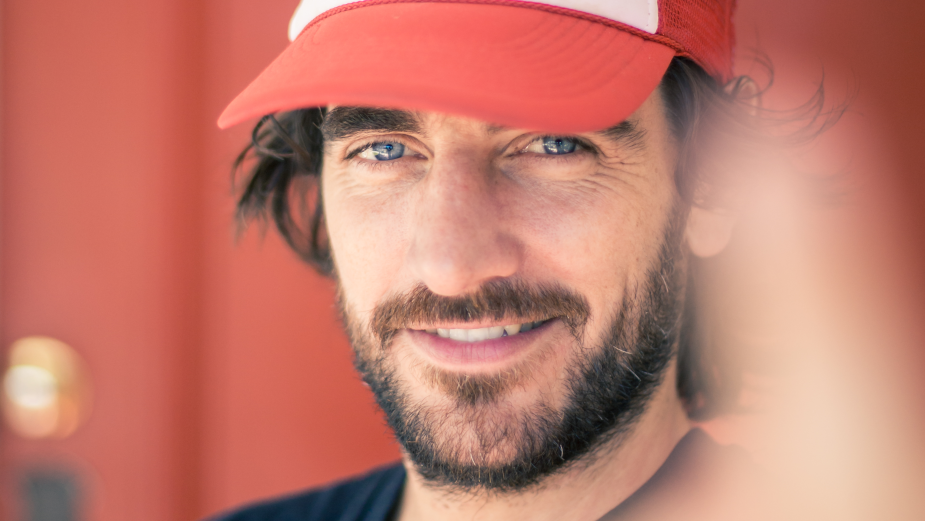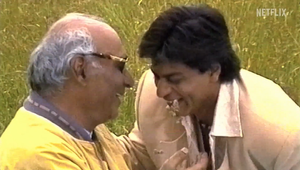
The Directors: Alex Feil

ALEX FEIL is a consummate storyteller and cinematic filmmaker with a deft command of actors and the full spectrum of human emotion. Alex has earned over 30 awards for his advertising work, most memorably for his campaigns for automotive brands Volkswagen, Mercedes-Benz, BMW, Audi and Jaguar. In addition to directing, he is also a member of the Art Directors Club, where he serves as a juror for international advertising festivals.
Critically-acclaimed, Alex’s work regularly achieves unprecedented audience reach and response: his Christmas film for Edeka was the most viewed and shared commercial of 2015 with over 64 million views on YouTube and 25 million views on Facebook and his popular work for Netflix 'Tudum Stories' was shortlisted at the 2022 D&AD Awards. 'The Little Escape', an ingenious, five-minute thriller directed for BMW epitomises Alex’s ability to deliver tightly-woven, immaculately-shot films that strike the perfect balance between drama and wit.
LBB> What elements of a script sets one apart from the other and what sort of scripts get you excited to shoot them?
Alex> If there’s an authentic story, it gets me excited. Advertising is about products that make our lives better (haha, hopefully). I love to tell life stories and to figure out how to get the audience emotionally involved.
LBB> How do you approach creating a treatment for a spot?
Alex> I think about a treatment as being a booklet of the completed film. A good treatment makes you feel the film was shot already.
LBB> If the script is for a brand that you're not familiar with/ don’t have a big affinity with or a market you're new to, how important is it for you to do research and understand that strategic and contextual side of the ad? If it’s important to you, how do you do it?
Alex> The contextual side of an ad is crucial. When a script fascinates me, I dive into the background and google the shit out of the product. I want to know everything that comes with it. You better know the good, but also the bad things about it to A) decide if you want to make an ad for it, B) present the idea/product in the best light.
LBB> For you, what is the most important working relationship for a director to have with another person in making an ad? And why?
Alex> There are three that are of equal importance.
The creative team – copywriter and art director. The best creative comes out of a collaboration with the agency creatives. I love the friction of challenging one another to make sure we’re on the right track.
Executive producer. They always see the bigger picture and meet me in the challenge: Will we be able to make this happen for the budget?
Director of photography. The DP and I are a dual engine on set pushing for the magic of the moment.
LBB> What type of work are you most passionate about - is there a particular genre or subject matter or style you are most drawn to?
Alex> I love nature. The fact that it’s the fuel for the engine of consumption makes me sad; mindless consumption is the reason for the dilemma our planet is in. I enjoy working for products that effectively apply sustainable practices and aren’t just greenwashing their brand.
LBB> What misconception about you or your work do you most often encounter and why is it wrong?
Alex> I’m hired to avoid misconceptions. With that said, some films are really delicate, and we have to work hard to anticipate misconceptions – channel the audience and see if we can resolve the issue in how we tell the story.
A couple of films I worked on with Edeka walked that delicate line. One film is about a grandfather who fakes his own death to get his family to come to visit him. Just hearing that you can image how horribly wrong it can go, but it didn’t, and audiences connected with the message of family and togetherness.
The other one is ‘The Story of Eatkarus’. The grocery store wanted to send a message to eat healthy using the metaphor of Ikarus who wants to fly like a bird. This one was tricky. I loved the simple message “You are what you eat,” but for a lot of people it is not that simple. So, we focused on connecting the audience to this one boy’s dream and took them on a fairy tale journey to show how he achieved his goal through hope and perseverance.
What people interpret or see is very personal to them. The best way to avoid misconceptions as a director is to distil all the client’s wants into one clear message for the film.
LBB> Have you ever worked with a cost consultant and if so how have your experiences been?
Alex> I’m not around cost consultants much these days and I am fine with it because it gives you a better playground before you start playing.
I also avoid working for companies with the policy 'the cheapest offer wins' – like in real life, we want to make informed decisions based on the principles of common sense, quality, sustainability, and fairness.
LBB> What’s the craziest problem you’ve come across in the course of a production – and how did you solve it?
Alex> We put in a lot of effort into a film for BMW. When you work for such a big brand, it is almost impossible to personally meet the top-level decision makers, but the agency, marketing head and I felt that the project was so important that we travelled to a dinner where all the decision makers were. We rented a big truck and created a little movie theatre on the truck bed. We drove the truck right in front of the restaurant. The BMW lead got a special message by the waiter to come outside before the main course. They were not only impressed by this cloak-and-dagger operation, but also by our presentation. We got a green light.
LBB> How do you strike the balance between being open/collaborative with the agency and brand client while also protecting the idea?
Alex> Honesty and sharing your gut feeling. There’s no right or wrong.
LBB> What are your thoughts on opening up the production world to a more diverse pool of talent? Are you open to mentoring and apprenticeships on set?
Alex> Of course! I have been teaching at Ludwigsburg Film School for a number of years now and I quickly learned that it will change how you look at what you do. Mentoring others is such a reciprocal process, it can inspire people on both sides to think differently about the choices they make and inspire one another to explore new territory.
Specifically, ‘on set’ is a different gig. I think aspiring directors can be on set as a voyeur because, for me, I’m completely in a bubble on set with the actors and DP. I am a part of the story. When the film is about pirates, we are pirates so pivoting to teacher on set would pull me out of the world we’re building.
LBB> How do you feel the pandemic is going to influence the way you work into the longer term? Have you picked up new habits that you feel will stick around for a long time?
Alex> Surprisingly, virtual production works really well. It’s another one of those things that keeps you going to question how you do things. Zoom meetings have made me more productive not having to travel to each location. I do many more virtual tours with my scout and have mostly been working remotely with my editor.
LBB> Your work is now presented in so many different formats - to what extent do you keep each in mind while you're working (and, equally, to what degree is it possible to do so)?
Alex> The essence of advertising will always be story and how you relate to it regardless of the format. Different formats are just different forms to deliver the story. I ensure my creative team always double checks what we need for the other formats while I focus on the main channel.
LBB> What’s your relationship with new technology and, if at all, how do you incorporate future-facing tech into your work?
Alex> Virtual production turned out to work better than expected and led to great work. As we get more technology and artificial intelligence involved in the process there are formulas that can be followed with story, style, and culture, but the end product will always have to be made by humans for humans.
LBB> Which pieces of work do you feel really show off what you do best – and why?
Alex> As an advertising director I try to create emotions for brands, so they can (re)engage with their (new) customers. Below I listed films for totally different clients to which I contributed my skills and knowledge.
Douglas ‘First Date’
EDEKA ‘Thank You’
BMW ‘The Small Escape’















